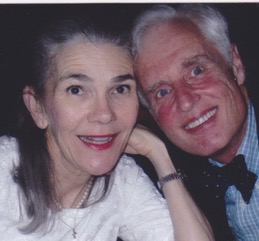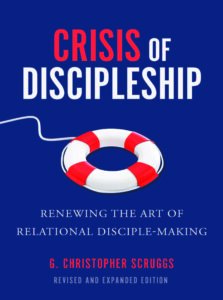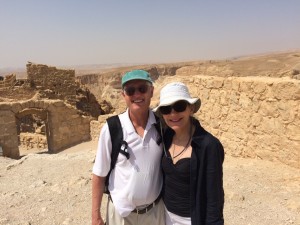This blog’s regular readers understand that the author opposes any “this-worldly” form of millenarianism, secular or religious. Many of the worst episodes of human violence are rooted in the human desire to achieve a perfect world within the boundaries of human history. This has been true throughout human history—and sometimes true of Christians.
In the 20th Century, the cataclysmic barbarity of Lenin, Hitler, Stalin, Mao, and a host of others found its roots in the mistaken belief that we can create a perfect world. Since the Enlightenment, human beings have been increasingly entranced by an unfounded hope that human beings can create an ideal society. Left and right politicians promise, and perhaps even occasionally work for, such a world. The results are uniformly disastrous. Churches and religious leaders can and have fallen into this trap. We can create a better world with wisdom and love for one another, but humans cannot make a perfect one.
The Hope for a Secular Paradise
 Last week, I primarily dealt with conflict and integration in human society. This week, we will examine Mead’s notion of a “Universal Society.” Near the end of his discussion of conflict and integration, Mead states the following:
Last week, I primarily dealt with conflict and integration in human society. This week, we will examine Mead’s notion of a “Universal Society.” Near the end of his discussion of conflict and integration, Mead states the following:
The human social ideal—the ideal or ultimate goal of human social progress—is the attainment of a universal human society in which all human individuals would possess a perfected social intelligence, such that all social meanings would each be similarly reflected in their respective social consciousness—such that the meanings of any one’s social acts or gestures (as realized by him and expressed in the structure of his self, through his ability to take the social attitudes of other individuals toward himself and toward their common social ends or purposes would be the same for any other individual who responded to them. [1]
Several aspects of this statement must be unpacked before we examine Mead’s views on achieving his notion of a universal human society.
- Mead accepts the Enlightenment notion of the inevitability of human progress.
- The world is evolving in accordance with the laws of nature, and human society is evolving according to the unwritten law of progress. In this, Mead reflects Darwin’s influence without fully applying the difference between cultural and biological evolution. In the case of biological evolution, all that is promised is survival of the fittest. In cultural evolution, such a “tooth and nail” notion ignores the fact that humans can actually create a worse future for themselves and the human race.
- At the core of Mead’s philosophy is the belief in human perfectibility, or more specifically, our capacity for a degree of “perfected social intelligence.” This term encapsulates our ability to understand and interpret social meanings and to align our actions with these meanings for the betterment of society.
- A perfected human social intelligence involves a unity of the acts and gestures of one’s individual self (“I” and “Me”), the social self of all other individual selves, and the social self of society as a whole regarding commonly held social ends or purposes. [2]
In my view, none of this is realistic or attainable, and an attempt to do so can result in foolish behavior, a loss of freedom, and suffering—the exact opposite of what those who make such an attempt desire.
Human Empathy
Underlying Mead’s argument is the human capacity to identify with one another in what he would call an “organized social life process.” [3] Mead understands that modern democratic societies have not reached the point where individual citizens can put themselves into the attitudes of those with whom they have relationships and whom they affect. [4] His argument, however, is based upon the presumption that it is at least theoretically possible, although there are obstacles and no society today has been able to achieve the kind of social solidarity envisions.
At this point, I think it might be good to put another word to this phenomenon: empathy. Empathy is the human ability to sense how another person is feeling and what they may be thinking and intellectually appreciate the reasons for human behavior. Empathy is crucial because it allows human beings to enter the emotional and thought world of another human being in a limited way. It is fundamental to such diverse practices as leadership, counseling, and even writing a popular book.
It doesn’t take a lot of experience to know that human empathy is limited. Every parent understands that they have some capacity to feel the pain and suffering of their children, but it’s imperfect. Every spouse knows the same. As one gets further from familiar relations, the problem gets even more severe. Pastors understand that they cannot fully enter the pain and suffering of counselees, so they must be careful about what they say and do. Business leaders understand that it is impossible to completely empathize with the problems of employees. Government leaders have the same experience. Our human capacity for empathy is limited, not just by our individuality but also by our selfishness and self-centeredness.
Societies cannot be built upon the hope that humans can fully enter into one another’s experiences on a social basis. We cannot. We can hope for a degree of wisdom and love in how we treat other people despite the fact that our interests and understanding will never be fully aligned. The problem is not that modern democratic societies or any other societies have not developed the capacity for complete understanding of and identification with the other. The problem is that it’s impossible.
Christians have an additional reason why we do not think a viable society can be built on human empathy or the human ability to enter into another individual’s mental, physical, and other worlds in a self-giving way: human sin, finitude, and brokenness. The human problem isn’t that some people do not have sufficient empathy. The human problem is not that some people act in selfish ways. The human problem isn’t that some people suffer from excessive anxiety and grasp too much money and power. The problem is we all do.
Children and Castes
Mead continues his analysis by examining the relationship between children and adults, especially between educators and children. [5] To be effective, teachers must empathetically enter the life world of those they teach. Interestingly enough, I have observed that when an adult teacher fully identifies with the children they are teaching, they emotionally regress or fail to mature as they should as adults. They get stuck in immaturity. As a pastor, I have seen this repeatedly with youth workers. Once again, this does not mean that we do not respect children, including respecting their limitations, emotional, physical, and mental. Any good teacher does. However, no good teacher believes it is enough to empathize with the student.
The second category Mead discusses is perhaps even more problematic. He begins to speak of “castes.” Most people are familiar with the Indian caste system, an absolute, impenetrable, and humanly unfair system of social stratification. Mead takes this concept and extends it to other relationships, particularly economic relationships. Once again, motivated by the best possible intentions, he muddies the waters instead of clarifying the situation. There’s a significant difference between “castes” and “achievement-oriented positions.”
Most of the time, there is an elite in churches, businesses, governments, academia, and other institutions. Much of the time, that elite has earned its way to a position. Of course, anyone who’s worked in any organization understands that political, social, and other injustices occur. Such injustices need to be addressed. But it’s a mistake to think that achievement-based excellence is some kind of a cast that excludes other people unfairly. [6] Mead seems to understand the limits of his analysis. For example, he notes, “Insofar as specialization is normal and helpful, it increases concrete, social relationship relationships. Differences in occupation do not themselves build up castes.” [7] Yet, his analysis leaves the impression that much of modern Western society’s social and economic inequity stems from this problem.
Selves and Societies
At the route of the problem of human social organization, the unbridgeable distinction between Selves and Society. Although human beings depend upon one another and civilization depends on our ability to unite in common endeavors, human self-centeredness, and selfishness inevitably color and render partial human social integration.
In a wonderful passage, Mead analyzes this problem:
The “social” aspect of human society – which is simply the social aspect of the cells of all the individual members taken collectively—with its concomitant feelings on the parts of all those individuals of cooperation and social interdependence, is the basis for the development and existence of ethical ideals in that society; whereas the quotes, “a social” aspect of human society – which is simply the asocial aspect of the cells of all human members taken collectively – with its concomitant feelings on the part of all these individuals of individual individuality, self-superiority to other individual selves, and social independence is responsible for the rise of ethical problems in that society. [8]
It is important to understand what he is saying and its limitations to unpack this paragraph.
- Mead defines the social aspect of a society merely in terms of the collective interaction of individuals. This is a classic statement of the modern view that individuals exist in purely external relationships with other individuals. Any such view inevitably ends up defining the existence of individuals in terms of power.
- Ethics is based upon a social consensus, the collective views of individual decisions concerning morality.
- Any society’s ethical problems stem from “asocial” aspects of human life instead of the social aspects of human life.
I believe meat is an error in all three of these beliefs. First, he’s already indicated that he understands that human beings grow out of social institutions, beginning with the family. If this is to be taken seriously, human individuals have no priority over human societies. Societies and human individuals exist in a kind of dynamic relationship. Individuals are important, and society is essential.
Second, the modern world was built upon the belief that human reason would be able to identify instead of human ethics that were agreed upon by all reasonable people. The history of the last 300 years shows that delusional. Our modern debates over abortion or a case in reasonable people on both sides hold diametrically opposed positions that cannot possibly be unified. The view against abortion did not grow out of a social consensus. In fact, in Greco-Roman society, there was no boundary against it. Instead, it grew out of something else: the belief that the sanctity of life was derivative of God’s love for every human being. Christians opposed the social consensus of their day on precisely that basis. My view is that ethics is a portion of wisdom. This is why studying the past and the decisions of the past, including wisdom and literature, is so important. When the writers of proverbs speak about sexual immorality, they do so based on the entirety of human history and the general experience of every human society that unbridled sexual gratification is foolish.
Finally, it doesn’t seem to me that you can say that the problems of human society stem from the “asocial” aspects of society unless you want to use the word asocial as a synonym for human self-centeredness, sin, and anxiety infinitude. If you’re going to do that, you can’t think of these things as aspects of human nature that can be overcome and extinguished. You think of them as things that must be dealt with and controlled. The writers of the Constitution had such a view. The whole system of checks and balances of American democracy has to do with the view that no one is trustworthy. Therefore, everyone has to be subject to constraints and limitations.
Conclusion
I’m going to have to leave me for a time. I’m writing a novel and must concentrate on the story. Nevertheless, I cannot leave his book without discussing his views on human time embeddedness and its consequences for human thinking. Mead was a student of Einstein and. understood that human beings are inevitably embedded in time and space and are therefore limited in their reasoning by their position in the space-time continuum. In a rather brilliant section of the book, he notes that humans always perceive the present based on the past and always understand the past based on the present. In other words, there is no unfiltered, scientific” understanding of the past. Our past is a constantly changing mental construct, as we’ve reflected upon it, as is our anticipation of the future. Even our current perceptions are immediately colored by all of the relevant perceptions from our past. [9]
Just to give a simple example of this, this morning, I was walking to get some exercise. I passed by a unique fence of multicolored wood. I immediately saw that it was a fence. Then, I noticed it was not like most of the wooden fences I am familiar with. The angles of the wood were different. The colors of the wood were different. Every fence influenced my understanding of this particular fence I could remember having seen. As I walked on, I continued to ponder fences in our neighborhood. I noticed other fences. I compared them with my mental picture of the fences I had just seen. But no fence was in my immediate consciousness except the one I was gazing at at that moment.
This has powerful implications for wisdom in public life. We are all colored by the attitudes, education, prejudices, and other factors of our past in our political views. Our hopes also influence our current political views for some future political situations. But we live in the present and must act in the present. The only way to overcome those prejudices is to adopt a pragmatic attitude toward politics. As we think about past situations, we have to scrutinize them to be sure that we have the best understanding of what occurred and how effective a former policy was that we could have. We have to overcome our colored knowledge of that past. On the other hand, as we gaze at our preferred future, we also must act wisely. Instead of making massive changes, we must experiment and ensure our hoped-for future can be obtained.
I was a pastor for years and served in liberal and conservative denominations; I have friends on both sides of the political arguments. I’ve gradually come to the view that I am not. I’ve also come to the view that my friends are not right concerning many matters. I’ve concluded that none of us know what to do next. As we move into the future, our best move is to closely examine an action’s likely consequences and carefully monitor our success or failure. If we can do that, left and right, there’s hope for a better future.
Copyright 2024, G. Christopher Scruggs, All Rights Reserved.
[1] George Herbert Mead, On Social Psychology rev. ed. (Chicago, Ill: University of Chicago Press, 1964), 270-271.
[2] At this point, Mead’s argument’s weakness becomes evident. After 300 years of Enlightenment thinking, no evidence exists that such a situation can be peacefully obtained. The fact is that people have widely divergent notions of what is involved in social progress and what any “ideal universal society” should look like. Many of these divergent notions are not only divergent; they are opposed to one another. Abortion, transgender issues, the degree of economic freedom individuals should possess, the degree of censorship the government should be able to employ, all these and more have vastly divergent proponents.
[3] On Social Psychology, 271.
[4] Id, at 282.
[5] Id, at 272.
[6] [6] Id, at 272-273.
[7] Id,
[8] Id, at 275-276.
[9] Id, at 328-341.















